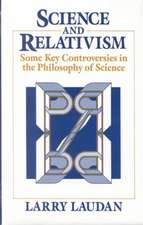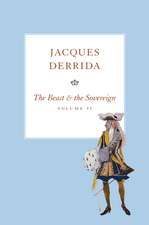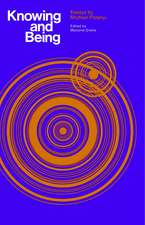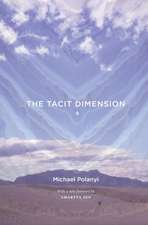Knossos and the Prophets of Modernism
Autor Cathy Gereen Limba Engleză Hardback – 15 mai 2009
Assembling a brilliant, talented, and eccentric cast at a moment of tremendous intellectual vitality and wrenching change, Cathy Gere paints an unforgettable portrait of the age of concrete and the birth of modernism.
Preț: 374.97 lei
Nou
Puncte Express: 562
Preț estimativ în valută:
71.76€ • 74.13$ • 59.72£
71.76€ • 74.13$ • 59.72£
Carte tipărită la comandă
Livrare economică 25 martie-08 aprilie
Preluare comenzi: 021 569.72.76
Specificații
ISBN-13: 9780226289533
ISBN-10: 0226289532
Pagini: 288
Ilustrații: 23 halftones
Dimensiuni: 152 x 229 x 23 mm
Greutate: 0.54 kg
Editura: University of Chicago Press
Colecția University of Chicago Press
ISBN-10: 0226289532
Pagini: 288
Ilustrații: 23 halftones
Dimensiuni: 152 x 229 x 23 mm
Greutate: 0.54 kg
Editura: University of Chicago Press
Colecția University of Chicago Press
Notă biografică
Cathy Gere is assistant professor at the University of California, San Diego, and the author of The Tomb of Agamemnon.
Cuprins
Acknowledgements
Introduction
I. The Birth of Tragedy, 1822-1897
An Archaeology of Heroes
A Prophecy of Tragedy
What Ariadne Is
II. Stand Up Tragedy, 1851-1899
The Dry Smell of Time
Eastern Questions
The Road to the Labyrinth
Greek Defeat
Reconstructing the Nation
III. Ariadne's Lament
Ariadne's Throne
The Great Cretan Mother
Ariadne's Dancing Floor
The Making of a Goddess
The Villa Ariadne
Cretan Victory
Ariadne in Chirico City
IV. The Concrete Labyrinth, 1914-1935
The Throne Room Complex
Captain of the Blacks
Court Ladies
Priest-King and Cowgirls
Lost Boys
The Lady of Sports
The Magic Ring
The Psyche Element
Little Souls
V. Psyche's Labyrinth, 1919-1949
Mythical Method
The Decline of Crete
Achilles' Shield
Freudian Archaeology
Psyche's Muse
Crete on the Couch
The Battle of Crete
VI. The Rebirth of Comedy, 1942-1949
Psyche Reborn
Paradise before Eve
Psyche Rewritten
The Consort
New Crete
VII. The Birth of Farce, 1950-2000
Romantic Revivals
The White Goddess
Black Athena
The Road Back to War
Conclusion
Notes
Bibliography
Index
Introduction
I. The Birth of Tragedy, 1822-1897
An Archaeology of Heroes
A Prophecy of Tragedy
What Ariadne Is
II. Stand Up Tragedy, 1851-1899
The Dry Smell of Time
Eastern Questions
The Road to the Labyrinth
Greek Defeat
Reconstructing the Nation
III. Ariadne's Lament
Ariadne's Throne
The Great Cretan Mother
Ariadne's Dancing Floor
The Making of a Goddess
The Villa Ariadne
Cretan Victory
Ariadne in Chirico City
IV. The Concrete Labyrinth, 1914-1935
The Throne Room Complex
Captain of the Blacks
Court Ladies
Priest-King and Cowgirls
Lost Boys
The Lady of Sports
The Magic Ring
The Psyche Element
Little Souls
V. Psyche's Labyrinth, 1919-1949
Mythical Method
The Decline of Crete
Achilles' Shield
Freudian Archaeology
Psyche's Muse
Crete on the Couch
The Battle of Crete
VI. The Rebirth of Comedy, 1942-1949
Psyche Reborn
Paradise before Eve
Psyche Rewritten
The Consort
New Crete
VII. The Birth of Farce, 1950-2000
Romantic Revivals
The White Goddess
Black Athena
The Road Back to War
Conclusion
Notes
Bibliography
Index
Recenzii
"An excellent account. . . . Fascinating. . . . I am indebted."
"A stylish and original cultural history of Knossos."—Economist
“Cathy Gere re-creates a century of bizarre misreadings of the nearly unknown ancient culture of Crete, and in doing so has produced that rarest of literary surprises: a genuinely hilarious work of Minoan historiography. . . . Gere tells some outlandish stories, but she never makes the protagonists themselves ridiculous.”
“Fascinating and consistently entertaining. . . . It is a tribute to the wit and clarity of Gere’s style that she is able to explain all this without making the reader’s brain ache.”
"[A] brilliant study of the role of Knossos in twentieth-century culture. . . . Gere writes with clarity and wit, but she never sacrifices the fascinating complexity of her tale to a simple story line."
“This is a wonderful, important, elegant, and well-written book. It constitutes a radical rereading of the archaeological process from the end of the nineteenth century to the middle of the twentieth, and it sheds new light both on the nature of archaeology at the time and on modernism as a philosophical and literary project. Different readers will be drawn to different aspects of Cathy Gere’s story but all will find it exciting and worthwhile.”
“Cathy Gere writes with verve and clarity, and with Knossos and the Prophets of Modernism she offers a surprising juxtaposition of individual personalities and themes that gives us a new way of thinking about the cultural origins of some of the most interesting aspects of modern culture.”
"Gere develops a stunning study of the cultural impact of Evans’s interpretation of Minoan society as a pacifist haven inhabited by immigrants from Anatolia, Egypt, and Libya. . . . . Gere’s aim is not to criticize or defend them. Instead, she attempts to understand the archaeologists, architects, artists, classicists, writers, and poets who reconstructed Minoan Crete in our time. And she does so brilliantly."
“This merger of past and present is at the heart of Cathy Gere’s richly textured and well-written cultural history. . . . The implications of this fascinating book extend far beyond the island that is its focus.”
"In this original, most readable, and at times mesmerizing book, Cathy Gere provides an historical and intellectual context for Arthur Evans's discovery and reconstruction of Knossos and Minoan civilization. . . . I think there is something of this wondrous quality in Gere's ability to discover links, connections, and underlying meanings in a dazzling array of archaeological, literary, and artistic works as well as between past, present, and future."
“Overall, this is an important contribution to our understanding of the role of archaeology and related fields in shaping the modern image of the past.”
“This is a simply wonderful book, expertly researched, written with panache, and consistently eye-opening. It brilliantly uncovers how the high priests of modernism—from Freud to Robert Graves to H.D.—were deeply engaged not just with the new discoveries of archaeology but also with a fantasy of ancient Crete—pacifist, sexually free, matriarchal—inaugurated by Sir Arthur Evans’s dig at Knossos. This is cultural history at its very best.”














